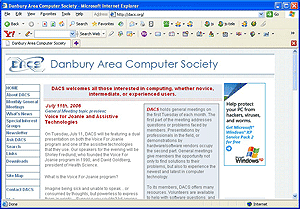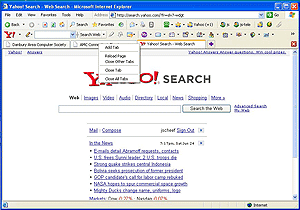Circuit Rider Net Neutrality In pre-revolutionary Philadelphia, Benjamin Franklin was a printer and publisher. To distribute his newspaper, Franklin hired couriers to deliver the newspapers to subscriber’s homes. Since these couriers would cover most of the city, he also started to deliver mail—the start of a postal service in that colony. When competing newspaper publishers asked that Franklin’s couriers also deliver their newspapers, Franklin refused. The other publishers could deliver their own papers. This is possibly the first instance of a carrier exercising control over content, at least on this continent. Let’s apply this to the Internet. If you get your Internet access from AT&T and they offer a movies-on-demand service, should they be required to also carry a similar service from Sony? If Verizon were to partner with the CNN news service, are they required to allow you to read the Wall Street Journal web site or any other news source? What if they allow the packets to pass, but only if the WSJ pays an additional fee? What if they allow the packets to pass, but just slow them down a little so the WSJ service is harder to use? Is that fair?
Now, let’s look at the cable industry. Historically, the cable industry decides what you can watch by determining what channels they carry and how those channels will be bundled and priced. After all, they paid to put that wire on the poles running down your street; they provide the “head end” that puts the signals in the wire, so they can decide which signals reach your house. What if they applied this traditional business model to the Internet? “Basic Internet” would include the “major outlets” of MSN, AOL and Yahoo (does that include email?). Naturally you would be required to use their browser. For a slight extra charge you could add the “sports package” that includes selected sports sites like Major League Baseball. Of course, access to the special World Cup Soccer coverage would be extra. And the rest of the Internet? Well, since those sites don’t pay an “access fee” to guarantee delivery of their packets . . .well, you get the idea. Given some time, even my simple brain could develop these scenarios further. Just image what really smart people might come up with—you know, really smart people like the ones who ran Enron, or the people who brought you the Sony root kit. The telecom industry says that requiring them to play fair with everyone’s content is unfair. Back in April, the Markey amendment would have fixed the issue but it was defeated. This is being decided by the clueless people we have elected to Congress. Call them, write to them, tell them that the Internet is important to you and must remain free and open as the unfettered conduit of democracy— not just for us, but for the entire world. If we don’t require net neutrality, how can we look Saudi Arabia or China in the eye? The really frightening part is that net neutrality is often seen as a simple issue about money and the moneyed interests are speaking as only they can. Remind your Congress-people (the issue is now in the Senate) who elected them, and how you feel on the issues that matter to you. A Pleasant Surprise, Once I found the setting in the Toolbar options to turn tabbed browsing on or off, I could relax and determine if this really is a good feature. Regular readers will recall that I am a big Yahoo fan and sang the praises of Yahoo and the toolbar back in January, ’04. [I’d trade $5 off the stock price if Yahoo would take a tougher stand with the Chinese government, but that’s another issue.] Because the Yahoo Toolbar is an add-on (actually it shows as four items in the Manage Add-ons dialog) it does not have the same control over events as the tabbed browsing built into Firefox and other browsers. This manifests itself when you try to middle-click (click the button under the scroll wheel) on a link. In most browsers, a middle-click on a link will open the target in a new tab. In the Yahoo Toolbar tabs this works only some of the time. Sometimes the toolbar gets the click event and it works properly; other times, you get that useless scrolling feature that IE has on the middle button. I’ve always wished I could turn that feature off (please let me know if you find the registry key to disable it). The first screen shot shows a web site familiar to us all, open in a tab. If you click the plus button next to the tab, you get a new tab with the Yahoo search page. I would prefer an empty tab, but this opens quickly and is innocuous. The second screen shot shows IE with three tabs open plus I right-clicked on the middle tab to display the context menu that allows you to manage open tabs. All-in-all, tabbed browsing is a pretty nifty addition to the Yahoo Toolbar that already offered pop-up blocking—an anti-spyware feature— along with quick access to all of your favorite Yahoo features. If you like Yahoo, you will like the new toolbar. Jim Scheef is past president of DACS. |


